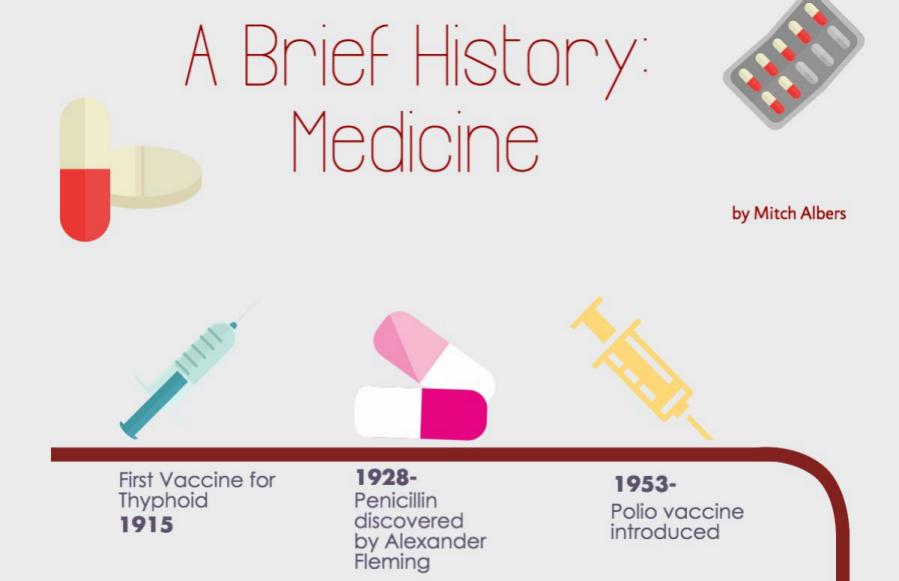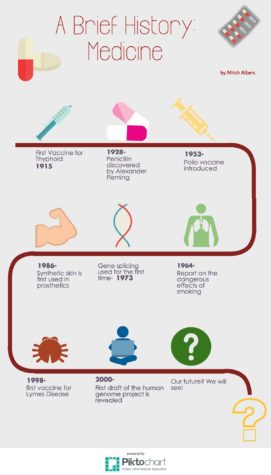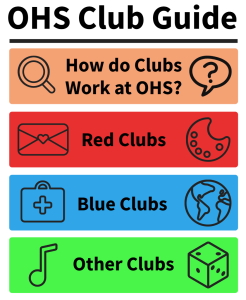Then and Now: A Brief History of Medicine
A brief history of medicine.
December 8, 2015
Take a moment and just think. How is it, that by swallowing a single pill, all of one’s pain can go away? Have a stomach ache? No problem, take some Pepto Bismol. Have a headache? Take some Advil. Medicine has turned people into superhumans, and, has been doing so since before one would think.
To fully comprehend when medicine took off would be impossible since there are records of medicine and medical treatments dating back to Egyptian times. This article is going to focus on the past 100 years, epitomizing the advancements in the world of medicine.
The year is 1915, 100 years ago: The British oceanliner, the Lusitania, was sunk by a German submarine. World War I had just begun; diseases such as typhoid, influenza, malaria, and trench foot were running rampant throughout the front lines. Medical technicians conducted experiments, vaccinating troops with typhoid bacilli – an early type of vaccine – to reduce the number of casualties during a time of such loss. These efforts not only proved successful in fighting typhoid, but also ended up becoming a vital part of the war effort.
Fast forward 13 years to 1928. A man who went by the name of Alexander Fleming, discovered the antibiotic penicillin- a bacterial fungus that killed microbial species. Before penicillin, infections like pneumonia and rheumatic fever were untreatable.
“The initial recognition of its therapeutic potential occurred in the United Kingdom, but, due to World War II, the United States played the major role in developing large-scale production of the drug, thus making a life-saving substance in limited supply into a widely available medicine,” the American Chemical Society said.
That’s enough of a history lesson today. Medicine can heal many diseases and infections in people, from lyme disease to measles, and it has created a healthier world for everyone. A look into the near future shows what to expect in the medical world.
“I would love to see a cure for cancer,” junior Morgan Marxer said. “We have invested so much time, money and research in search for a cure.”
Is the cure for cancer almost here? Scientists have been genetically altering cells, designing them to find the cancer cells in the body and destroy them. While this process will not cure all kinds of cancer, doctors believe that many forms of cancer can be treated this way.
“I would like to see a vaccine that you only have to get once,” senior Bobby Carlson said. “Having to get a shot every year is a pain.”
While a vaccine that someone only needs to get once would be nice, scientists from Centers for Disease Control and Prevention stated that “a flu vaccine is needed every season for two reasons. First, the body’s immune response from vaccination declines over time, so an annual vaccine is needed for optimal protection. Second, because flu viruses are constantly changing, the formulation of the flu vaccine is reviewed each year and is occasionally updated in order to keep up with changing flu viruses.”
Will we ever have a cure for cancer? Will there ever be a lifetime vaccine? Only time will tell. The past shows that the advancements in medicine have revolutionized the present, and will continue to do so in the future.






























































